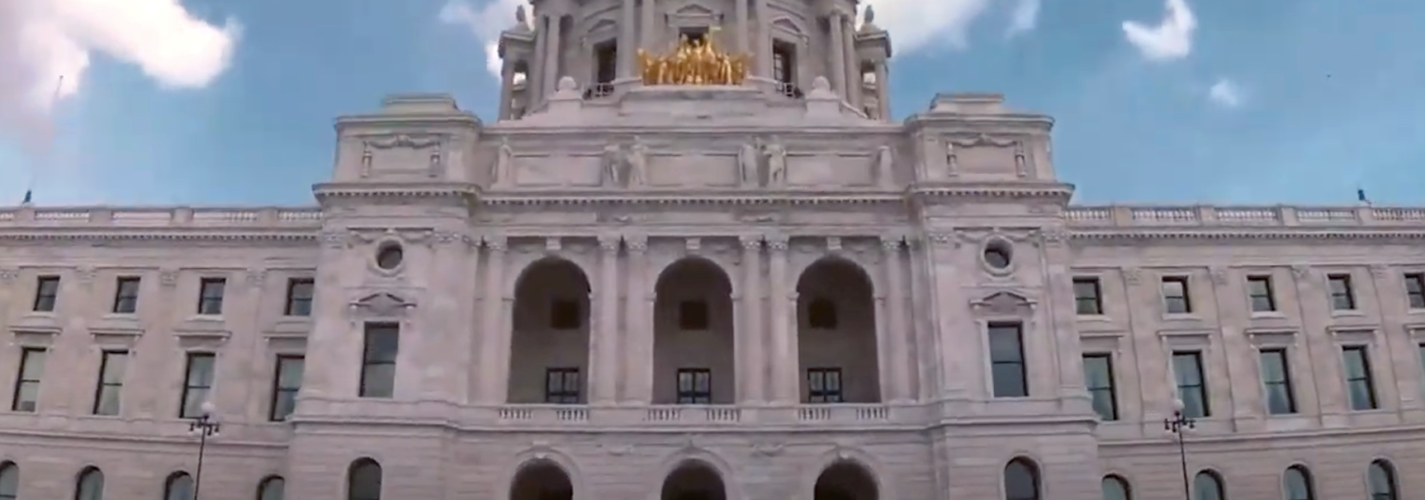2020 Session Wrap-Up: What Passed, What Didn’t (and What Still Has a Chance)?
By Michelle Koffa
The 2020 legislative session was not what anyone expected. COVID-19’s devastating impact on Minnesota students and their access to a quality education forced policymakers to shift into response mode to address the immediate needs of students and their families. The Legislature went down to the wire before adjourning early Monday—meeting some deadlines but delaying much of its work for a likely special session this summer.
Education proposals were some of the last bills legislators addressed. In the last hours of session, legislators passed a COVID-19 education bill, but failed to advance a broader education policy omnibus bill as debate went to literally the last minute. A bill to invest broadband access was also left on the cutting room floor.
What Passed: The COVID-19 Education Bill
On Sunday night, with less than 30 minutes before the end of session, the Minnesota Legislature passed a comprehensive COVID-19 education bill. The DFL House and GOP Senate went back and forth on the bill for months. But, in the end, they were able to compromise on several provisions to help students, their schools, and educators. Some key provisions include:
- Closing the Digital Divide: Gives school districts more flexibility with their budgets so they can help give students access to the internet and devices for distance learning.
- Keeping Teachers in the Classroom: Gives nearly 25 percent of Minnesota teachers, whose licenses are set to expire at the end of June, a six-month extension for renewal so they can stay in the profession.
- Waiving Student Requirements: Allows the Minnesota Department of Education (MDE) to waive truancy requirements, annual assessments, and other requirements students are unable to complete due to school closures.
- Guidance on CARES Act Spending: Requires MDE and the governor to work together as they develop a plan to spend federal COVID-19 relief funding on education priorities.
What Didn’t Pass
Since March, COVID-19 has dominated the conversation. But the Minnesota Legislature also considered an education policy omnibus bill that included some great policies that didn’t make the headlines. This bill was a pared-back version of proposals on the table before COVID-19 hit, striking some controversial provisions in the hopes of advancing bipartisan compromise to address long-standing education policy needs.
The bill included a provision to eliminate suspensions for 3- and 4-year-olds, only allowing expulsions under rare circumstances after other disciplinary interventions. Given that preschool students are three times more likely to be dismissed than K-12 students, this bill would have been an important step toward ensuring our youngest learners are kept in the classroom and away from the school-to-prison pipeline.
Though House DFL and Senate GOP education leaders agreed on the final language, the House vote didn’t happen in time for the bill to go to the Senate before Monday’s midnight deadline.
Though House DFL and Senate GOP education leaders agreed on the final language, the House vote didn’t happen in time for the bill to go to the Senate before Monday’s midnight deadline. Debate heated up at the last minute about a series of amendments that, if passed, would have undermined the negotiated agreement and sunk the bill in the Senate. Time slipped away and the bill was dead.
Another bill that didn’t make the cut would have invested $8 million in a new Broadband Access Grant Program. The proposal would have allowed districts to apply for funds to cover the cost of providing internet access to students for distance learning. Given that about 17 percent of Minnesota students—mostly from low-income and rural communities—did not have access to reliable internet when COVID-19 hit, this bill would have created a sizable investment in closing the digital divide. Despite general agreement on the bill, it got caught up in debate about whether federal funds would be sufficient—a risky bet given the depth of the digital divide and access being a lynchpin for student success.
What’s Next?
Along with the education policy omnibus bill, there were several other policy areas where agreements were not reached, including a tax bill, economic aid, and a bonding bill. The governor and the Legislature have indicated that they will likely pick up where they left off with a special session in June.
We hope to use a special session as an opportunity to advance areas of bipartisan compromise that fell apart in the last days of session.
We hope to use a special session as an opportunity to advance areas of bipartisan compromise that fell apart in the last days of session: reducing early learning dismissals, putting an end to lunch shaming, and investing in the dependable internet access students need to learn.
Many of the issues we came into session advocating for fell by the wayside—from investing in pathways to the classroom, to ensuring actionable, transparent data, to broader action on student discipline. Over the coming year, we’ll work to assess these priorities in light of COVID-19, while also elevating an ongoing policy conversation about learning loss. Minnesota students need access to a rigorous and engaging education, and we must see that this happens in the time of COVID-19 and beyond.

